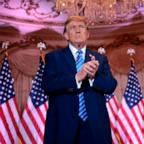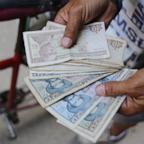Alito Unruffled by Democrats' Questioning
WASHINGTON, Jan. 10, 2006 — -- If Democrats were looking for an issue on which to hang a politically risky filibuster of Judge Samuel Alito's nomination to the Supreme Court, they didn't appear to find one today.
In the first day of lengthy questioning on hot-button topics, including abortion and executive power, Alito remained unruffled -- defending his opinions and writings, while indicating that his past views on certain issues may have evolved and would not necessarily indicate how he would rule from the bench.
The most pointed exchanges of the day may have been on abortion -- despite the fact that Democrats have been trying to downplay the issue nationally, and only a few actually delved into it in today's hearings. Chairman Arlen Specter, the pro-choice Republican senator from Pennsylvania, raised the issue right off the bat, asking Alito whether he believed the Constitution included a right to privacy. Alito said he did.
Specter also asked him about a 1985 memo he wrote while in the Reagan Justice Department saying he did not believe the Constitution protected the right to an abortion. Alito said he wrote that memo as a "line attorney" and that he would approach the issue with an "open mind" as a judge. Later, however, Sen. Charles Schumer, D-N.Y., took a harder line: "We can only conclude that if the question came before you it is very likely that you would vote to overrule Roe v. Wade."
Overall, the Democrats' strategy for the day seemed to be to portray Alito as a justice who would side with the powerful at the expense of the individual. In the wake of recent revelations about President Bush authorizing the National Security Agency to spy -- without obtaining warrants -- on people in the United States, senators repeatedly asked Alito about his views of presidential powers, and whether in a time of war the president has the power to override laws enacted by Congress.
Alito was also pressed on a past ruling in which he sided with police officers who had strip-searched a 10-year-old girl -- a case in which former judge and now Homeland Security Secretary Michael Chertoff had strongly dissented. Alito said his decision was based on a "rather technical issue" involving the warrant itself, though he found what happened to the girl regrettable. Similarly, on a case in which U.S. marshals had evicted a family of farmers at gunpoint, Alito cited evidence that indicated the family may have possessed weapons.
Many of the most controversial topics drew from memos Alito wrote during his time in government -- including one in which he seemed to question the principle of "one person, one vote," after the Supreme Court ruled congressional districts must be equal in population. Alito defended himself by saying he did not actually disagree with the principle but "was talking about how I got interested in constitutional law back in college, and I was certainly stimulated at that time by my consideration of the issue of one person, one vote."
Other lines of questioning edged into more personal territory -- as when Sen. Patrick Leahy, D-Vt., asked Alito about his membership in a group that opposed the admission of women and minorities to Princeton, Alito's alma mater. Leahy pointed out that Alito came from a family of immigrants. Referring to the group, Concerned Alumni of Princeton, Leahy asked, "Why in heaven's name, Judge, with your background, and what your father faced, why in heaven's name were you proud of being part of CAP?" Alito said he had no recollection of the organization, but that he must have joined because he was "rankled" that Princeton had expelled the ROTC from the campus during his senior year (though it was later reinstated).
Alito was also pressed repeatedly about his failure to recuse himself from a case involving Vanguard Mutual Funds -- in which he owned stock -- despite an earlier promise to do so. In response, he noted that he wasn't legally required to recuse himself in the case, but that he did so voluntarily after he realized what had happened, arranging for the case to be reheard. He also noted that he did not benefit financially from the case.




